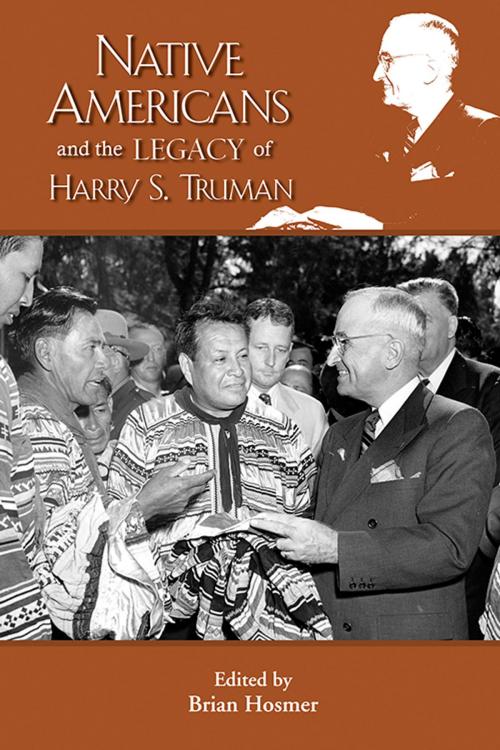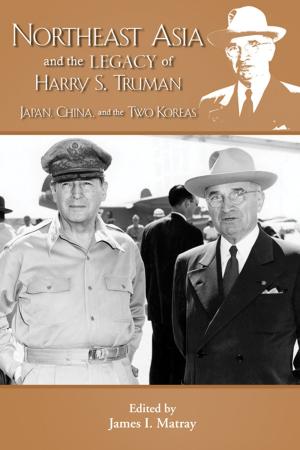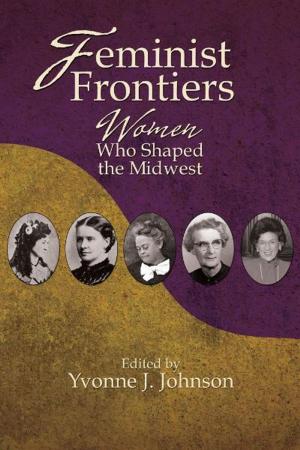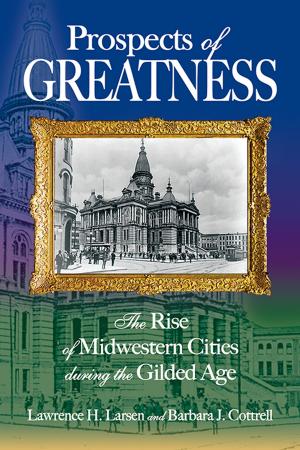Native Americans and the Legacy of Harry S. Truman
Nonfiction, History, Americas, Native American, United States, 20th Century| Author: | Brian Hosmer, Frederick E. Hoxie, Ken Hechler, Douglas K. Miller, Samuel Rushay Jr., David E. Wilkins, Helen Hornbeck Tanner, John Echohawk, Ben Nighthorse Campbell, Ada E. Deer, Harry A. Kersey Jr., Jessica R. Cattelino | ISBN: | 9781935503842 |
| Publisher: | Truman State University Press | Publication: | January 1, 2010 |
| Imprint: | Language: | English |
| Author: | Brian Hosmer, Frederick E. Hoxie, Ken Hechler, Douglas K. Miller, Samuel Rushay Jr., David E. Wilkins, Helen Hornbeck Tanner, John Echohawk, Ben Nighthorse Campbell, Ada E. Deer, Harry A. Kersey Jr., Jessica R. Cattelino |
| ISBN: | 9781935503842 |
| Publisher: | Truman State University Press |
| Publication: | January 1, 2010 |
| Imprint: | |
| Language: | English |
Harry S. Truman oversaw the beginning of a dramatic shift in the relationship between the U.S. government and Native Americans. Not generally associated with Native Americans or Native American affairs, Truman’s presidency marked the end of the Indian New Deal begun under the Roosevelt administration and the start of a policy known as “termination,” which anticipated the end of tribalism and the assimilation of all Native Americans by encompassing final compensation for tribal grievances, relocation to urban centers, and a dismantling of the trust relationship between the government and Native American nations. Truman, influenced by Cold War politics, Republican opposition in Congress, and the growing civil rights movement, attempted to honor the promises of the U.S. government and support tribal self-determination while upholding the broader goals of termination. Drawn from contributions by scholars, activists, attorneys, politicians, and representatives from several Native American nations, this collection considers the immediate effects of termination, as well as its long-term consequences. Rather than leading to the destruction of Native American sovereignty and culture, one of the legacies of termination was the rise of modern Native American activism. And, as Brian Hosmer writes in the introduction, Truman would have appreciated “the resolve demonstrated by Native people, and their efforts toward realizing self-sufficiency and self-government.”
Harry S. Truman oversaw the beginning of a dramatic shift in the relationship between the U.S. government and Native Americans. Not generally associated with Native Americans or Native American affairs, Truman’s presidency marked the end of the Indian New Deal begun under the Roosevelt administration and the start of a policy known as “termination,” which anticipated the end of tribalism and the assimilation of all Native Americans by encompassing final compensation for tribal grievances, relocation to urban centers, and a dismantling of the trust relationship between the government and Native American nations. Truman, influenced by Cold War politics, Republican opposition in Congress, and the growing civil rights movement, attempted to honor the promises of the U.S. government and support tribal self-determination while upholding the broader goals of termination. Drawn from contributions by scholars, activists, attorneys, politicians, and representatives from several Native American nations, this collection considers the immediate effects of termination, as well as its long-term consequences. Rather than leading to the destruction of Native American sovereignty and culture, one of the legacies of termination was the rise of modern Native American activism. And, as Brian Hosmer writes in the introduction, Truman would have appreciated “the resolve demonstrated by Native people, and their efforts toward realizing self-sufficiency and self-government.”















